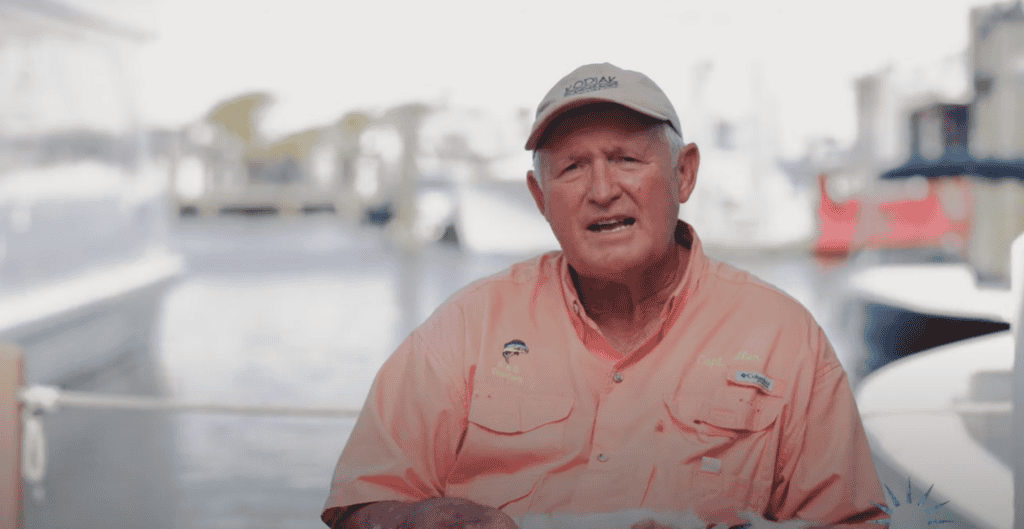Cases
Mexican Gulf Fishing Company v. National Oceanic and Atmospheric Administration
CASE: Mexican Gulf Fishing Company, et al. v. National Oceanic and Atmospheric Administration, et al.
STATUS: Closed
NCLA ROLE: Counsel
COURTS HEARD IN: 5th Cir., E.D. La.
ORIGINAL COURT: U.S. District Court for the Eastern District of Louisiana
DECIDING COURT: U.S. Court of Appeals for the Fifth Circuit
OPENED: August 20, 2020
FOCUS AREAS:
CASE SUMMARY
The U.S. government tried to force charter boats and companies that take customers fishing and sightseeing in the Gulf of Mexico to purchase a vessel monitoring system (VMS). Federal agencies would have used VMS tracking devices to monitor boats’ movements and whereabouts on the water, even when they are not using their federal permits to fish. NCLA’s class-action lawsuit against the U.S. Department of Commerce, NOAA, the National Marine Fisheries Service (NMFS), and their heads, contends that these agencies were mandating an unlawful 24-hour GPS surveillance regime without a warrant.
NCLA’s named clients, for-hire vessel operating companies and captains, would have been affected by a final rule that Commerce, NOAA, and NMFS intended to enforce. The rule would have forced owners or operators of charter vessels or for-hire vessels in the Gulf to submit electronic fishing reports using NMFS-approved hardware and software with GPS location capabilities that “at a minimum, archive vessel position data during a trip for subsequent transmission to NMFS.” The rule also would have required that captains pay for the vessel equivalent of an ankle bracelet. NCLA contended these agencies could not issue a regulation that would monitor law-abiding captains more closely than many paroled prisoners.
The agencies claimed this rule was meant to “increase and improve fisheries information collected from federally permitted for-hire vessels in the Gulf.” But NCLA argued that warrantless access to the GPS information of a person’s locations and movements would have amounted to an unreasonable search violating the Fourth Amendment and violated Ninth Amendment rights, including the right to privacy, freedom of movement, free enterprise, freedom from unreasonable governmental interference, and the right to travel. Since plaintiffs would have been the sole owners of their devices’ data, its seizure without cause would also have violated the Fifth Amendment’s Due Process Clause.
RELEVANT MATERIALS
NCLA FILINGS
Motion to Withdraw Motion for Fees and Costs
November 29, 2023 | Read More
Opinion of the U.S. Court of Appeals for the Fifth Circuit
February 23, 2023 | Read More
Appellants’ Reply Brief
June 22, 2022 | Read More
Appellees’ Brief
June 1, 2022 | Read More
Brief of Amicus Curiae the Buckeye Institute in Support of Appellants and in Support of Reversal
May 9, 2022 | Read More
PRESS RELEASES
In NCLA Win, Fifth Circuit Tosses Back NMFS Rule Trying to Track Charter Boats Without a Warrant
February 23, 2023 | Read More
NCLA Files Fifth Circuit Appeal to Stop Unlawful 24/7 Tracking of Gulf of Mexico Charter Boats
May 3, 2022 | Read More
NCLA Appeals District Court Ruling Allowing Government to Unlawfully Track Gulf Charter Vessels
March 3, 2022 | Read More
NCLA Successfully Petitions NOAA to Delay Warrantless 24/7 Surveillance of Charter Boats in the Gulf
November 2, 2021
Something Is Fishy in the Gulf: NOAA Forces Charter Boat Captains to Install ‘Anchor Bracelets’
September 3, 2021
IN THE MEDIA
Charter Captains Are Suing the Government Over New “Anchor Bracelet” Requirement
Field & Stream
February 7, 2023
Gulf boat operators allege high-tech fisheries monitoring violates their constitutional rights
Louisiana Record
February 7, 2023
Charter captains file federal suit over GPS, reporting rule
Cape Coral Breeze
February 7, 2023
Gulf of Mexico charter operators fight back against lawsuit mandating electronic monitoring
SeaFoodSource
February 7, 2023
Suit challenging new charter boat rules OK’d as class action
Associated Press
February 7, 2023
CASE HIGHLIGHTS
Media Mention
February 7, 2023
Gulf boat operators allege high-tech fisheries monitoring violates their constitutional rights
Source: Louisiana Record
Media Mention
February 7, 2023
Suit challenging new charter boat rules OK’d as class action
Source: Associated Press
Press Release
February 23, 2023
In NCLA Win, Fifth Circuit Tosses Back NMFS Rule Trying to Track Charter Boats Without a Warrant

